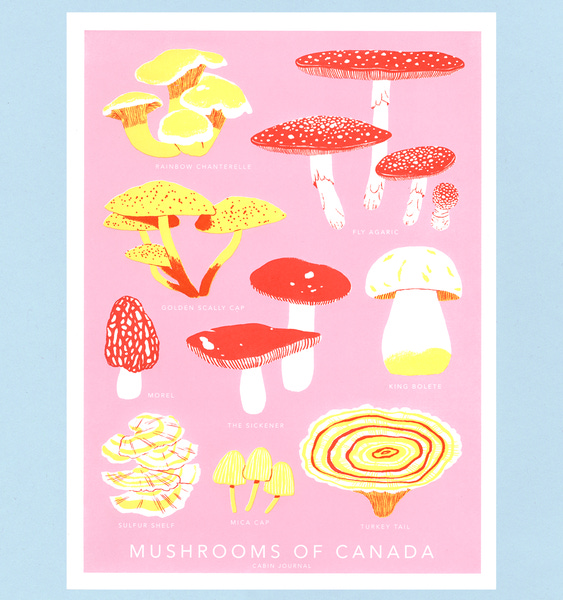This month one sentence in my horoscope stuck out to me. Before you get your anti-astrology hackles all the way up, let me say for the skeptics that I like Chani Nicholas’ horoscopes because they’re well-written, justice-oriented, attuned to the current moment, and far more striking than, say, the blurbs in the newspaper.
Minding one’s business is a lost art but one that you are asked to resurrect over the course of May.
The curmudgeon in me says that social media marked the death of minding your own business, but if I’m being honest, I’m deeply—and sometimes dangerously—curious, no technologies needed. If information is being withheld from me, I immediately want to know it, regardless of the consequences.
A few months ago I went to the UM library and asked the person at the desk where I could find a list of professor salaries—information that is supposed to be publicly available because professors are state employees. The librarian apologized and told me that it was in a binder somewhere in Lommasson, another building on campus. “Isn’t it a little weird that there isn’t a copy of that here?” I asked. He nodded, then half-whispered, “Yeah, it’s a little weird.”
(So begins my investigative telenovela, where characters in trench coats and fedoras ask ¿Dónde está la biblioteca? in husky voices.)
As soon as the data turned out to be hidden, whether by bureaucratic shuffling or intentional obfuscation, my vague interest became a curiosity dagger. That sharp, insistent need to know is useful for writing, but it’s not necessarily useful for relationships (the band Joseph has a song, “In My Head,” that feels relevant here.)
I have yet to locate the salary binder (stay tuned). And it’s challenging for me not to offer unsolicited advice or ask probing questions. Pandemic offers different opportunities on this front: to remove yourself from certain dramas, schedules, and politics because you can’t or won’t see the people they involve, or, to insert yourself, perhaps needlessly, in comment threads, news coverage, and guilt.
Rather than asking what constitutes privacy, I think this call to ‘resurrect the art of minding your own business’ asks us to make a distinction between disconnection and detachment, to recognize the former as a precursor to apathy and the latter as a conservation of energy.

Photo by my mother, who, with her friends, has made more than a hundred masks. If you live in Missoula and would like a mask, email me saying how many and which size (larger or smaller—both sizes are intended for adult heads), and I can ask for them to be added to an incoming package and then distribute them to you. For the sake of sanity we’re not taking pattern requests—with volunteer work, you get what you pay for, as my mom would say.
I’ve been deep in the realm of Miley Cyrus lately (lately meaning both ‘during finals when I revised an essay about her’ and ‘the last two years, as my roommate can probably tell you.’) From this foray I want to bring (or re-bring) your attention to the song “4x4” featuring Nelly, one that anticipated the genre-fusion genius of “Old Town Road.” Like daughter, like father.
Other cultural findings of late:
A music video featuring Juan Leyenda and an endearing diner dance: “Quisiera” by Flor de Toloache, Cultura Profética, and John Legend.
An essay by Sabrina Orah Mark about fairy tales, academia, and making your peace with the bread that I hope you’ll read (recommended by Anne Helen Petersen)
The Rumpus runs an epistolary service called “Letters in the Mail” where, for a monthly fee, you can receive letters from rotating, often renowned writers. It’s a great way to ensure you get mail you actually want and to support The Rumpus as well as the US Postal Service. (Keep investing in stamps, if you can—a new Harlem Renaissance series is now available for pre-order.)

Art by Emily Taylor.
This is a great time to try growing mushrooms at home (you can order substrate online; once it arrives, you soak it and then spray it regularly according to the species’ preferred conditions) or hydroponic gardening, especially for lettuce, which grows fast and tastes best freshly plucked.
Planting trees and growing moss, whether in your home or in your community, are also effective, tangible forms of environmental care.
In response to COVID-19, Pakistan decided to expand its 10 Billion Trees campaign to hire newly unemployed workers to plant trees—read more here. Sounds like a (green) New-Deal-era program to me.
As the country begins to figure out how we “open back up” and move forward, very powerful forces will try to convince us all to get back to normal. (That never happened. What are you talking about?) Billions of dollars will be spent on advertising, messaging, and television and media content to make you feel comfortable again. […] The need for comfort will be real, and it will be strong. And every brand in America will come to your rescue, dear consumer, to help take away that darkness and get life back to the way it was before the crisis. I urge you to be well aware of what is coming. […] Smart marketers know how to highlight what brands can do for you to make your life easier. But brilliant marketers know how to rewire your heart. […] We are, as a society, now vulnerable in a whole new way.
-Julio Vincent Gambuto, “Prepare for the Ultimate Gaslighting”
A hundred years ago Warren G. Harding won the United States presidential election with the slogan “Return to normalcy.” These words promised a balm in the aftermath of WWI. Like Gambuto, I urge you to beware the temptation of “normalcy,” to interrogate the entire standard of “normal.” Is it “normal” for the richest country in the world to still lack a nationwide form of paid family leave? If “normal” means that Native women make 57 cents on the dollar compared to white men, do we want to go back? (This year’s Equal Pay Day took place on March 31; it’s not until August 13 for Black women, October 1 for Native women and October 29 for Latin@ women.)
So here are some ways to challenge a supposed “return to normalcy”:
If you want to distribute your money (IRS check or otherwise)—
Save lives by donating to groups that bail people out of jail; consider Taraji P. Henson’s foundation, which has responded to coronavirus by offering five sessions of free virtual therapy for black people who sign up; or invest in local artists and regional systems of production (such as the Northern California Fibershed Cooperative.)
If you want to use your words—
Call your representatives this week and ask that the phase four COVID-19 response package include funding to support survivors of domestic violence and sexual assault (as well as the people who serve them). More information/scripts here.
You can also volunteer to call voters in your community’s get-out-the-vote campaign(s) and/or write letters to the editor (the word count is typically quite small) that call into question continued construction on Keystone XL, if you live in Montana, or other fossil fuel shenanigans, if you reside in another state.
If you want to share health—
Donate blood, if your health and vulnerability permit. And, it hopefully goes without saying, wear your mask, wash your hands, hold off on hosting parties, etc.
If you want to educate yourself—
Sign up for this workshop hosted by the Highlander Research and Education Center about “Becoming a Middle Class Traitor” (takes place tomorrow, Monday, May 18) and/or listen to Christy Harrison’s podcast Food Psych.
If you need to take care of yourself—
Turn off your phone, the Wi-Fi, or both. Take naps. Stretch your hips and hamstrings.
Remember: you cannot do all the good the world needs, but the world needs all the good you can do.
Until next time,
Abby


